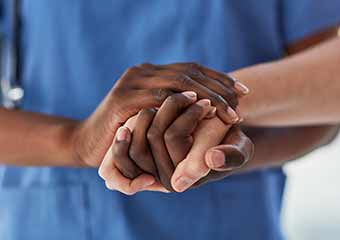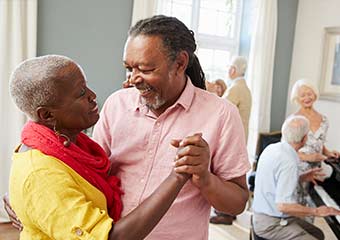Stress – it’s often (if not always) a regular part of life. But everyone handles it differently, and many people are frequently on the search for ways to deal with it more effectively. Now, while stress triggers are usually different from person to person, the brain is actually hardwired to process stress in a certain […]
Can Fear of Happiness Get in the Way of Healing?
Why is it so hard to get people to follow through on strategies that are good for them? Patient noncompliance can be one of the greatest roadblocks that keeps people from achieving their goals. And I recently came across some new research that might hold a clue to what holds some people back. You see, […]
Trauma and the Brain: Why Congress is Finally Helping Traumatized Veterans
On February 12, 2015, President Obama signed the Clay Hunt Suicide Prevention for American Veterans Act. The purpose of this act is to provide help to US veterans suffering from PTSD. This legislation provides funding for the study of new trauma treatment strategies as well as for recruiting more mental health practitioners to work with […]
Fear, Self-Esteem, and the Power of Touch
How crucial is the power of touch in developing a healthy sense of self-esteem . . . . . . and what role do these play in how people respond to fear? To answer these questions, Dr. Sander L. Koole and a team of researchers at VU University Amsterdam in the Netherlands conducted a series […]
How the Brain Works with the Vagus: Empathy and More
When someone’s frowning, or beaming, or gaping in surprise, they’re wearing their heart on their face. That’s because the muscles that control facial expression are linked to the smart vagus, says Stephen Porges, PhD. Thanks to the vagus nerve, the emotions we feel are displayed on our faces and in the sound of our voices. […]
Creativity and the Brain
Could it be time for you to get out your painter’s smock and brushes? A new study by the Mayo Clinic may be just the motivation you need. The clinic recently published findings of their four-year study on risk factors for cognitive aging. A team of researchers led by Dr. Rosebud Roberts selected 256 participants […]
10 Ways Dance Strengthens the Brain
The other day, we shared some brand-new studies that investigated the neural effects of dance on people diagnosed with Parkinson’s disease. Dance has been shown to improve motor function, cognitive function, mental symptoms, and overall quality of life in people both with and without Parkinson’s disease. These results have been found in scientific studies, but […]
Neuroplasticity and Trauma: Can Brain Science Give Us a New Perspective on Healing?
The brain can be a powerful ally. Our brains are always looking out for us. They’re wired to help us survive – alerting us to threats and ramping up our amygdala to help us take action. But that same survival trigger makes healing from trauma difficult, says Pat Ogden, PhD. In fact, the very systems […]
Parkinson’s Disease and Dance
Could dancing the tango improve cognitive function? According to the non-profit organization Dance for PD® (Parkinson’s disease), the answer is yes. Because Parkinson’s is a brain disorder, some people thought it might be uniquely affected by something like dance. So they approached the Mark Morris Dance Group in Brooklyn, New York, about creating a program […]
Autism: Is There a Gut Connection?
Could there be a connection between autism and the gastrointestinal system? A team of researchers led by Elaine Y. Hsiao of the California Institute of Technology recently noted that a subset of people diagnosed with autism also display a spectrum of gastrointestinal abnormalities. So to test this, her researchers injected mice with an immunostimulant known […]









